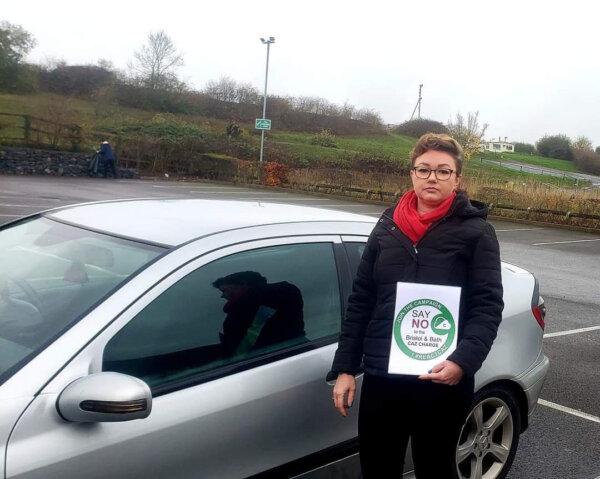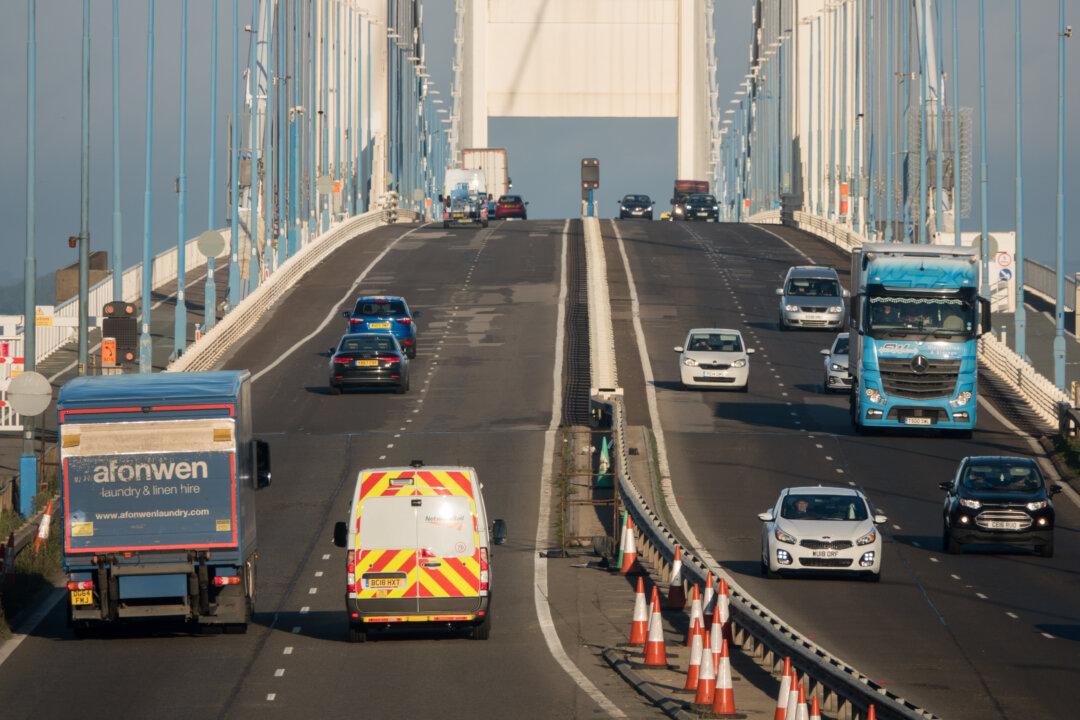Resident campaigners claim that a major clean air zone scheme that charges certain cars to enter Bristol is hitting the city’s working drivers hardest.
However residents who spoke to The Epoch Times said that the measures are a “tax on the poor” that pushes pollution onto other areas.
There are CAZs in Bath, Birmingham, Bradford as well as Bristol that act like London’s Ultra Low Emission Zone (ULEZ) which charge vehicles that do not meet certain emissions standards a daily fee to drive or face fines.
In Bristol, non-compliant cars, taxis and vans have to pay an £9 daily charge, with enforcement cameras operating around the clock every day of the year.
2050 One City Plan
Bristol supports the 15-minute city urban planning concept under its 2050 One City Plan to become a “fair, healthy and sustainable city.”He claimed that “nitrogen dioxide pollution is down by 10 percent across Bristol and is almost 13 percent lower inside the Clean Air Zone (CAZ).”
Freedom and Independence

“I’m in that group of people who rely on their vehicles on a daily basis. Nowadays for many people car is not a luxury good anymore, it’s essential. Due to health issues I cannot walk long distances. On top of that I have a genetic disorder causing problems with balance so I will never be able to ride a bike,” she said.
“In the area where I live there is no GP and there is one local grocery shop but I would simply go bankrupt if I would do my shopping there so I prefer to use my car to do my weekly shopping in a supermarket which is 15 minutes drive but to get there on the bus would take me probably one hour one way if I would be lucky,” she added.
She said that there are many places where people cannot rely on public transport to get to their workplaces, shops, schools, GPs .
Ms. Kowalska said that she was a support worker looking after people in their homes doing unsocial hours, quite often starting at 7 a.m. and finishing at 10 p.m., sometimes travelling long distances or getting to places where there is no public transport.
She said that she did her own research about “anti-car policies” and was “sceptical about studies published by organisations which might be charities but could be funded by government or environmental groups.”
‘Bus Deserts’
Despite Bristol’s mayor saying in January that raised CAZ cash could be spent on improving transport, last year transport campaigners warned to the BBC that some parts of Bristol risked becoming “bus deserts” due to the cuts of dozens of subsidised services.Mick accused the council of being “actively anti-car, anti-business, and anti-science.”
“They are anti-the poor, they are against anyone who lives and works here and they don’t care how they affect normal people. They are ruthless ideologues with no considerations but their own politics,” he added.
‘Extreme Stress and Anxiety’
Residents also said that they faced a wall of administration when trying to dispute CAZ fine errors. Some said they had repeated visits by bailiffs to their properties to collect debts.Justine Coppard told The Epoch Times that when she personalised the number plate to her 2004 beetle convertible car, the subsequent fines caused her “extreme stress and anxiety.”
This was despite her vehicle being compliant.“I put this number plate on my car in September 2023, it was then I had almost daily fines for driving in the clean air zone,” she said.
“I called the DVLA and Bristol council, they both blamed each other, I was going around in circles as both were saying my car is not compliant with the Bristol clean air zone. I knew this was incorrect and for a total of five months I continued receiving fines, totalling to hundreds and hundreds of pounds, that were starting to double as I refused to pay them and they were rejecting my appeals,” she added.
“To this day I am still receiving fines for driving into the Bristol clean air zones,” she said. “I’m not sure who to turn to now, I can’t go through this all again,” she added.
Bristol Council did not respond to The Epoch Times’ specific comments.
“Measures aimed at reducing levels of motor traffic should be prioritised, with additional action aimed at incentivising cleaner vehicles for essential journeys that cannot be shifted,” it added.







